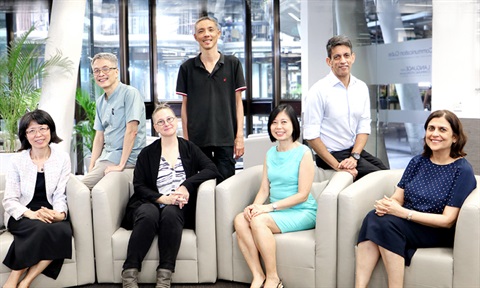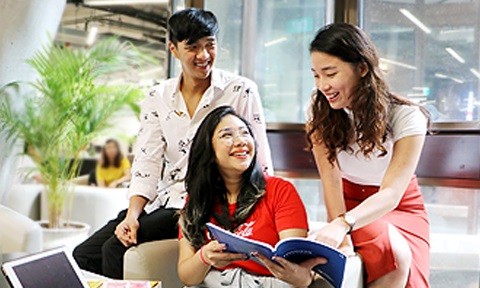LCC Faculty & Staff
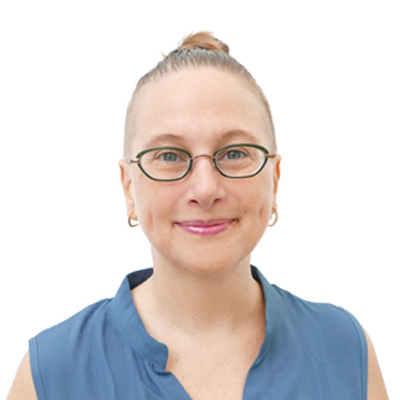
Director, Language and Communication Centre
Senior Lecturer, School of Humanities
Angela Frattarola
Office: SHHK-02-17
E-mail: [email protected]
Dr. Frattarola is the Director of the Language and Communication Centre. Over the past twenty years, she has taught first-year writing courses, as well as classes on modernism and twentieth-century literature. Her book, Modernist Soundscapes: Auditory Technology and the Novel (University Press of Florida 2018), explores how early auditory technologies such as the phonograph, headphones, talkie, and tape recorder, subtly changed the public's sense of auditory perception, and how those changes are reflected in and shaped the modernist novel. Aside from her publications in modernism and sound studies, which can be found in journals such as Woolf Studies Annual, Mosaic, Modern Drama, Journal of Modern Literature, Studies in the Novel, and Genre, Dr. Frattarola studies the pedagogy behind best teaching practices for helping students become effective readers and writers.
Selected Publications
Book
Frattarola, A. (2018). Modernist Soundscapes: Auditory Technology and the Novel. University Press of Florida.
Peer-Reviewed Articles
Frattarola, A. (in press). The Aura of the Phonographic Relic: Hearing the Voices of the Dead. In The Routledge Companion to Literature and Death. Routledge.
Frattarola, A. (2017). Community gardens or affordable housing: A false dichotomy grows in the Lower East Side. Moving Worlds, 17.1, 69-78.
Frattarola, A. (2013). The limitations of vision and power of folklore in John Dos Passos’s USA. Studies in the Novel, 45(1), 80-101.
Frattarola, A. (2012). Fabricating history through folklore in Ming Cher's Spider Boys. SARE: Southeast Asian Review of English, 50(1), 83-96.
Frattarola, A. (2011). Auditory narrative in the modernist novel: Prosody, music, and the subversion of vision in Dorothy Richardson's Pilgrimage. Genre: Forms of Discourse and Culture, 44(1), 5-27.
Frattarola, A. (2010). The phonograph and the modernist novel. Mosaic: A Journal for the Interdisciplinary Study of Literature, 43.1,143-159.
Frattarola, A. A. (2010). A glimpse of Aidan Higgins through his critical work. In N. Murphy (Ed.), Aidan Higgins: The Fragility of Form. University of Illinois: Dalkey Archive Press.
Frattarola, A. (2009). The modernist “Microphone Play”: Listening in the dark to the BBC. Modern Drama, 52(4), 449-468.
Frattarola, A. (2009). Developing an ear for the modernist novel: Virginia Woolf, Dorothy Richardson, and James Joyce. Journal of Modern Literature, 33(1), 132-153.
Frattarola, A. A. (2009). Modernism and the irresponsible allusion: Joyce, Eliot and Pound. In D. Jernigan, N. Murphy, B. Quigley, & T. Wagner (Eds.), Literature and Ethics: Questions of Responsibility in Literary Studies. New York: Cambria Press.
Frattarola, A. (2005). Listening for ‘found sound’ samples in the novels of Virginia Woolf. Woolf Studies Annual, 11, 133-159.

Assistant Professor, School of Humanities
Deputy Director, Language and Communication Centre
Koo-Cheah Swit Ling, Diane
Office: SHHK-02-35
E-mail: [email protected]

Lecturer, Language and Communication Centre
Aileen Chai
Office: SHHK-03-35
E-mail: [email protected]
LinkedIn: https://www.linkedin.com/in/aileen-chai-profile/
Aileen Chai is a lecturer at the Language and Communication Centre (LCC), School of Humanities, Nanyang Technological University, Singapore. Before joining LCC, she taught communication, design thinking, writing, and pedagogy at the University at Buffalo (Singapore campus), the National Institute of Education, and Singapore Polytechnic.
Her interests include communication, teaching and learning, educational technology (edtech), and 21st-century competencies. She began her career in the United States as a news reporter and entertainment technical director at ABC, PBS, and NPR affiliates. In Singapore, she led the media and communications department at a media and events company, focusing on corporate communication and live productions.
Driven by a long-standing desire to contribute to education, she transitioned into the education sector. As a Senior Specialist in MOE’s Educational Technology Division, she focused her research on media and communication, pedagogy, and edtech. Her work received multiple innovation awards for impact on teaching and learning.
She was awarded a Postgraduate Scholarship from MOE and completed her Master of Education (Learning Sciences and Technologies) at the National Institute of Education (NIE). She received the Dean’s Commendation for Research for a book chapter developed from her dissertation, which explored addressing cyberbullying issues through dialogic discussion, role play, design thinking, and participatory design. During her time at MOE, she supported schools in English Language and character development and also served as a practicum supervisor and NIE lecturer.
These experiences shaped her passion for teaching young adults and led her to focus on andragogy, adult education, edtech, and fostering critical thinking through writing.
Selected Publications
Journal Articles
Chen, W., Pi, Z., Tan, J. Wang, X., Chai, A. S. C., & Lyu, Q. (2025). The scripted computer-supported collaborative argumentation in a secondary school classroom: An exploratory study. Instructional Science 53 (2). https://doi.org/10.1007/s11251-025-09704-z
Chen, W., Han, Y., Tan, J., Chai, A. S. C., Lyu, Q., & Lyna. (2024). Exploring students' computer‐supported collaborative argumentation with socio‐scientific issues. Journal of Computer Assisted Learning, 40(6), 3324-3337.
Book Chapters
Chai, A. S. C. (2024). Video-rich learning environments: Curate/design and orchestrate. In C. L. Quek & C. F. Yap (Eds.), Engaging in Home-based Learning (pp. 71-78). Pearson Education South Asia Ptd Ltd.
Chai, A. S. C. & Ng, W. K. (2024). Designing online lessons for students with mild intellectual disability participating in higher-order thinking activities from home. In C. L. Quek & C. F. Yap (Eds.), Engaging in Home-based Learning (pp. 55-62). Pearson Education South Asia Ptd Ltd.
Chai, A. S. C. (2019). Adolescent co-researchers design media literacy lessons to address cyberbullying through design thinking: Encouraging passive bystanders to protect cyber-victims. In Handbook of Research on Media Literacy Research and Applications Across Disciplines (pp. 352-378). IGI Global.
Conferences
Citation
Chen, W., Li, X., Ng, E. E., Su, J., Lyu, Q., Chai, A. S. C., & Su, G. (2024). Supporting students’ uptake on peer feedback in collaborative argumentation: A design-based research. Proceedings of the 18th International Conference on Learning Sciences (pp. 1762-1765). Buffalo, United States: International Society of the Learning Sciences.
Schunn, C., Noroozi, O., Chen, W., Lyu, Q., Chai, S. C. A., Li, X., ... & Herrenkohl, L. R. (2024). Perspectives from the field: Scaffolding peer critique and feedback. In Proceedings of the 17th International Conference on Computer-Supported Collaborative Learning-CSCL 2024, pp. 315-322. International Society of the Learning Sciences.
Chai, A. S. C., Selamat, H., & Lee, M. R. M. S. (2023, July). Narrative 360° Video: Influencing adolescents to adopt the empathetic mindset and enact prosocial belief in cyberbullying and bullying context. In EdMedia+ Innovate Learning (pp. 1008-1013). Association for the Advancement of Computing in Education (AACE).
Chai, A. S. C., Selamat, H., & Lee, M. R. M. S. (2023, July). Learning environments designed to cause of mindset shift in a Cyberbullying and bullying context ranging from regular videos to immersive interactive videos. In EdMedia+ Innovate Learning (pp. 577-584). Association for the Advancement of Computing in Education (AACE).
Chen, W., Li, X., Su, J., Lyu, Q., Chai, A. S. C., Ng, E. E., & Su, G. (2023, May). Exploring the utility of learning analytics-based formative feedback for collaborative argumentation and interaction relationships. Beijing, China: Global Chinese Society for Computers in Education (GCCCE) Conference 2023. (Nominated for Best Paper Award)
Chen, W., Su, J., Lyu, Q., Li, X., Chai, A. S. C., Su, G., & Ng, E. E. (2023, May). The effects of individual preparation on students’ collaborative argumentation-based learning: An exploratory study in a secondary school classroom. Global Chinese Society for Computers in Education (GCCCE) Conference 2023, Beijing, China. (Best Paper Award)
Chen, W., Ng, E. E., Li, X., Chai, A. S. C., & Lyu, Q. (2023, May). The role of peer feedback on the quality of students’ computer-supported collaborative argumentation. Global Chinese Society for Computers in Education (GCCCE) Conference 2023, (Nominated for Best Paper Award)
Chen, W., Ng, E. E., Su, G., Su, J., Li, X., Chai, A., & Lyu, Q. (2023). Argumentative knowledge construction and certainty navigation: A comparison between individual and group work. Proceedings of the 31st International Conference on Computers in Education (pp. 301-306). Msatsue, Japan: Asia Pacific Society of Computers in Education.
Chen, W., Su, G., Li, X., Lyu, Q., Su, J., Chai, S. C. A., & Ng, E. E. (2023). From individual ideation to group knowledge co-construction: Comparison of high- and low performing groups. In J.-L. Shih, A. Kashihara, W. Chen, & H. Ogata (Eds.), 31st International Conference on Computers in Education Conference Proceedings (Vol. 1, pp. 256-265). Asia-Pacific Society for Computers in Education.
Chen, W., Han, Y., Lyu, Q., Tan, J., Chai, A., Lyna, & Su, J. (2022). Deepening students’ understanding of socio-scientific issues through graph-oriented computer supported collaborative argumentation: An exploratory study. International Society of the Learning Sciences 2022.
Chen, W., Su, J., Lyu, Q., Chai, A., & Toh, W. L. (2022). Interaction and monitoring matter: Comparison of high and low-performing groups in CSCL. In S. Iyer et al. (Ed.), Proceedings of the 30th International Conference on Computers in Education. KL, Malaysia: Asia-Pacific Society for Computers in Education.
Wang, C. J. & Chai, A. S. C. (2013). An investigation on how designing video advertisements influences secondary school students' perception of learner autonomy, 2013 IEEE 63rd Annual Conference International Council for Education Media (ICEM), Singapore, 2013, pp. 1-16, doi: 10.1109/CICEM.2013.6820163.
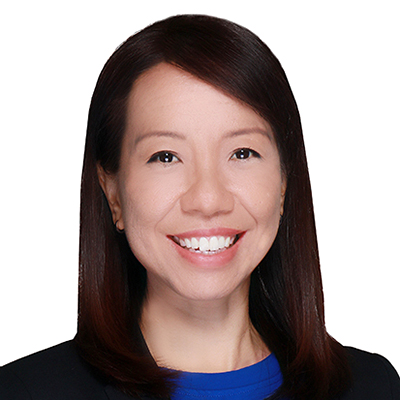
Lecturer, Language and Communication Centre
Chan Tsu Ai Ivy
Office: SHHK-03-04
E-mail: [email protected]
Dr Ivy Chan is a Lecturer at the Language and Communication Centre. She received her PhD in Applied Linguistics from the National Institute of Education (NIE), Nanyang Technological University (NTU). For her PhD dissertation, she explored ways to support refugees’ English Language Learning by using a Funds of Knowledge approach.
Before teaching at NTU, she had extensive teaching experience with communication and academic writing modules in various tertiary institutions where she taught mature and young adult learners. Besides curating communication, writing and bridging programmes, she has coached master’s students in the Lee Kuan Yew School of Public Policy at the National University of Singapore (NUS) and student coaches from Singapore Management University (SMU). With a heart for the marginalised, she is keen on pedagogies to develop refugee educators’ teaching. Her research interests include asset-based pedagogy, culturally responsive teaching, technology-enhanced learning, problem-based learning, and English Language Teaching for marginalised populations, specifically refugee women and children.
Selected Publications
Chan, I., & Teo, P. (2025). Using a funds of knowledge approach to support refugee children in Malaysia. Journal of Multilingual and Multicultural Development, 1–16. https://doi.org/10.1080/01434632.2025.2499110
Chan, I., & Teo, P. (2024). Supporting social inclusion of refugees: A funds of knowledge approach. Educational Review, 77(3), 851–868. https://doi.org/10.1080/00131911.2024.2398035
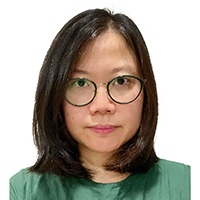
Lecturer, Language and Communication Centre
Chia Weiting Joanne
Office: SHHK-02-07
E-mail: [email protected]
Joanne Chia is with the Language and Communication Centre at Nanyang Technology University (NTU), Singapore and has previously taught at the Singapore University of Technology and Design (SUTD) as well as in the Gifted Education Programme in the Ministry of Education (MOE). She graduated with a Ph.D. in English from NTU where she read W.B. Yeats and Derek Mahon. Her teaching research interests include exploring the relationship between interdisciplinary thinking and writing.
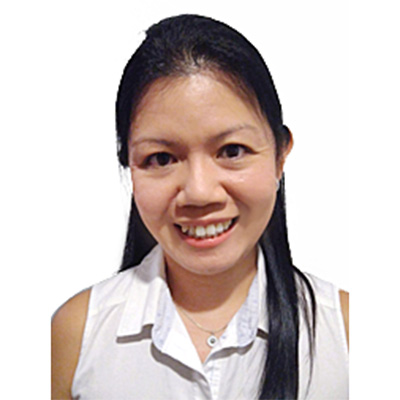
Lecturer, Language and Communication Centre
Tina Chung Tsu Lin
Office: SHHK-03-19
E-mail: [email protected]
Ms. Tina Chung is a Lecturer at the Language and Communication Centre. Prior to joining the LCC, she worked as a trained teacher for over two decades teaching English, Literature, and English as a foreign language to local and international high school students. Her research for her Master of Arts in English focused on the presentation of women’s work in nineteenth-century novels, and she tutored undergraduate modules including Post-Colonial, Victorian, and Singapore Literature. Ms. Chung is interested in the pedagogical effects of multi-modal reading across genres on the thinking and representation of ideas, as well as the nature, validity and relevance of literary and language assessment.
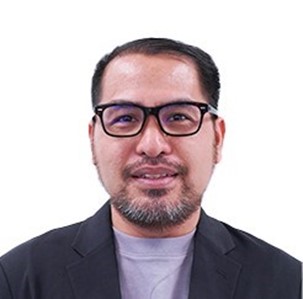
Lecturer, Language and Communication Centre
Nimrod Delante
Office: SHHK-02-04
E-mail: [email protected]
Nimrod earned his PhD from the University of the Philippines in 2019. In 2006, he completed his M.A. in English Language and Literature Teaching at the Ateneo de Manila University, Philippines. During the COVID-19 pandemic (2021), he completed a Certificate in Business Analytics for Strategic Decisions at the National University of Singapore (NUS) Business School. Nimrod has extensive teaching experience both in Singapore and in the Philippines. His teaching interests include inquiry, communication, rhetoric, and critical thinking. His current research interests constitute reflective teaching, intercultural communication, interpersonal communication, rhetoric, semiotics, and development communication.
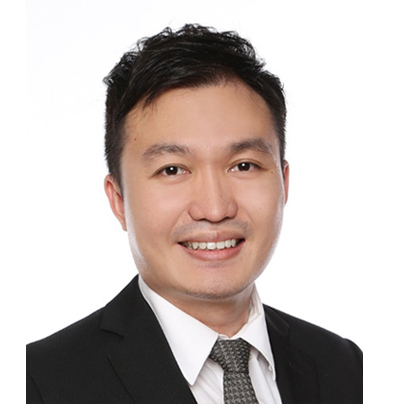
Ho Jia Xuan graduated in 2021 with a PhD from NTU , where he also completed his undergraduate studies (2011) and MA programme (2013). His research interests lie in the field of time and narrative, specifically in the works of Dermot Healy and J.M. Coetzee. When he isn't reading or writing, JX enjoys the occasional glass of wine and watching the beautiful game of football.
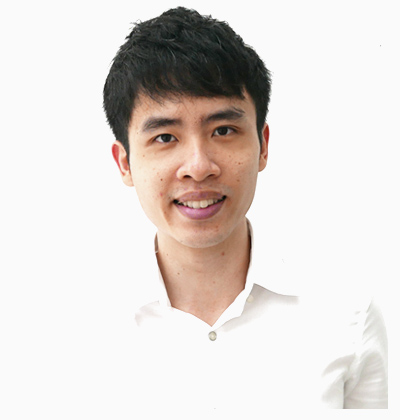
Mr. Hong completed his MA in English Literature at NTU in 2020, for which he wrote an analysis of the scientific and mathematical concepts behind the works of Argentinian writer Jorge Luis Borges. Prior to his MA, he obtained his BA in English Literature at NTU in 2017.
He is interested in exploring the value of hard science fiction as a medium of communication popular science. In addition, he also has plans for writing science fiction of his own.
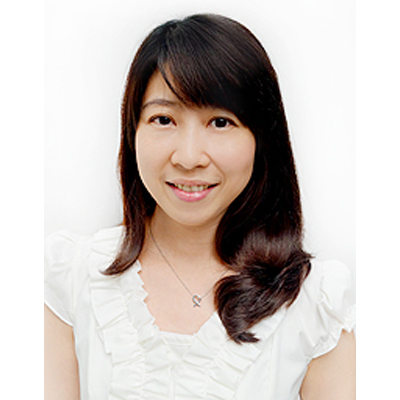
Senior Lecturer, Language and Communication Centre
Hsieh Yi-Chin
Office: SHHK-02-12
E-mail: [email protected]
Dr. Hsieh Yi Chin joined the Language and Communication Centre (LCC) at Nanyang University in 2015. She earned her Ph.D. in Language Education from Indiana University at Bloomington, United States, with a minor in Instructional Systems Technology. Her M.A. was completed at the University of Illinois at Urbana-Champaign, United States, specializing in TESOL. Dr. Hsieh has extensive teaching experiences in a variety of settings, including teaching English reading and writing for academic purposes, communication skills, and communicative Mandarin in tertiary and secondary schools. Her research interests include learner interactions in collaborative learning, second language learners’ digital literacy, and technology incorporation into language classroom. Her current research focuses on knowledge construction among language learners in an Internet-supported collaborative learning environment.
Selected Publications
Hsieh, Y. C. & Hill, C. (2021). Reconceptualizing the value of peer feedback and instructor feedback using a sequential structure. Assessment & Evaluation in Higher Education, 47(7), 1043-1056. DOI: https://doi.org/10.1080/02602938.2021.1998341
Hill, C., Khoo, S. & Hsieh, Y. C. (2020). An investigation into the learning transfer of English for specific Academic Purposes (ESAP) writing skills of students in Singapore. Journal of English for Academic Purposes, 48, 1-13.
Hsieh, Y. C. (2020). Learner interactions in face-to-face collaborative writing with the support of online resources. ReCALL, 32(1), 85-105.
Hsieh, Y. C. & Hill, C. (2018). Investigating the peer review process in English for Specific Academic Purposes (ESAP) courses in Singapore. LCC Working Paper Series, (5), 79-91.
Hsieh, Y. C. (2017). A case study of the dynamics of scaffolding among ESL learners and online resources in collaborative learning. Computer Assisted Language Learning, 30(1-2), 115-132.
Park, J., Yang, J., & Hsieh, Y. C. (2014). University level second language readers’ online reading and comprehension strategies. Language Learning & Technology, 18(3), 148–172. Accessible at http://llt.msu.edu/issues/october2014/parkyanghsieh.pdf
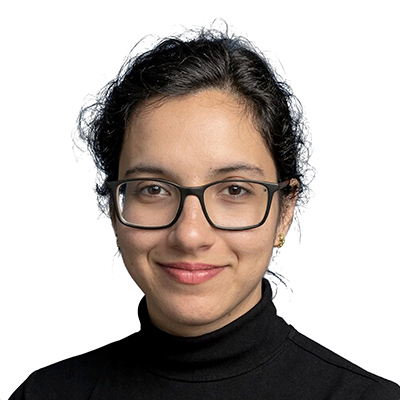
Amrita Iyer earned her Master’s in English from Goa University, India, where she also qualified for the prestigious Junior Research Fellowship at the national level. She is currently wrapping up her PhD in English at NTU, Singapore.
Her research examines the concept of technology not merely as a tool for human use, but as a force that interacts and evolves alongside living beings. She looks at unconventional relationships between humans, technologies, and the natural world in science fiction cultural productions (ranging from novels and films to animation), to speculate about alternative ways of being. Building on this foundation, her future research aims to delve deeper into how these relationships might influence human identity and societal structures in an increasingly technologized world. She has published her work in journals such as Environmental Humanities and books such as Eco-catastrophes in Japanese cinema and the forthcoming Shaping Transfuturisms.
In addition to research, she has taught NTU's Interdisciplinary Collaborative Core course on writing to undergraduate students. In the past, she has also tutored undergraduate and graduate students across different streams (humanities, engineering, medicine, science, business studies) in one-on-one and group consultations for ideation, writing, and oral communication skills.
Selected Publications
Uy, J. & Iyer, A. S. (2024). Hanahaki Disease. Environmental Humanities, 16(3), 692-696. https://doi.org/10.1215/22011919-11327388
Iyer, A. S. (2024). Technology, Urban Sprawl, and the Apocalyptic Imagination in Hiroyuki Seshita’s Blame! (2017). In R. DiNitto (Ed.), Eco-catastrophes in Japanese cinema (Asia Shorts series) (pp. 222-235). Association of Asian Studies (distributed by Columbia University Press).
Iyer, A. S. (2019). A Shot in the Dark: Delogocentrism in Harold Pinter’s The Dwarfs and Luigi Pirandello’s Six Characters in Search of an Author. IAFOR Journal of Arts & Humanities 6(2), 81–92. Web. doi: https://doi.org/10.22492/ijah.6.2.08
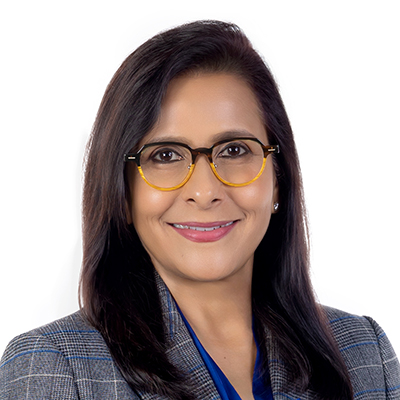
Assistant Chair (Careers and Attachment), School of Humanities
Senior Lecturer, Language and Communication Centre
Senior Lecturer, Lee Kong Chian School of Medicine (Courtesy Appointment)
Jain, Ritu
SHHK-02-21
Telephone: 6790 4607
E-mail: ritujain@ntu.edu.sg
Before joining LCC as a full time lecturer, Dr Jain taught a range of courses from Business Communication to Unpacking Bollywood at various tertiary institutions across the island. Her research and academic interest lies in the area of language management. For her PhD research at the National University of Singapore (NUS), she examined the role of the language education policy in the promotion and maintenance of Indian languages in Singapore. In particular, she investigated the implications of the growing prominence of Hindi for the maintenance of other Indian languages as well as intra-ethnic community harmony. She also has a Masters in English Literature and another in Applied Linguistics.
Dr Jain is a reviewer for the journal Language and Education. She has won several teaching awards and remains on the Faculty of Arts and Social Sciences (NUS) Honour Roll for winning the Graduate Student Teaching Award three times in a row. Beyond academia, Dr Jain helms DEBRA Singapore, a non-profit, patient-support/advocacy organisation for ‘butterfly children’ born with the rare genetic disorder, Epidermolysis Bullosa.
Selected Publications
Jain, R. & Wee, L. (2019). Language Education Policy, Singapore. In A. Kirkpatrick & T. Liddicoat (Eds.) The Routledge Handbook on Language Education Policy in Asia (pp. 272-285). Routledge.
Jain, R. & Wee, L. (2018). Diversity management and the presumptive universality of categories: The case of the Indians in Singapore. Current Issues in Language Planning. doi:10.1080/14664208.2018.1503386
Jain, R. & Wee, L. (2017). Cartographic mismatches and language policy: The case of Hindi in Singapore. Language Policy. doi:10.1007/s10993-016-9429-8
Jain, R. & Wee, L. (2015). Multilingual education in Singapore: Beyond language communities? In A. Yiakoumetti (Ed.), Multilingualism and Language in Education: Sociolinguistic and Pedagogical Perspectives from Commonwealth Countries (pp. 67–85). Cambridge: Cambridge University Press.
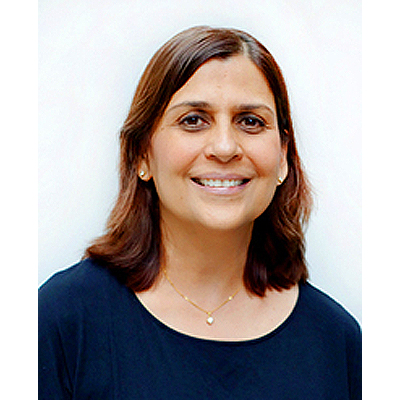
Senior Lecturer, Language and Communication Centre
Sujata S. Kathpalia
Office: SHHK-02-34
E-mail: [email protected]
Dr Kathpalia is a Senior Lecturer in the Language and Communication Centre (LCC). At present, she is a member of the Management Committee of LCC and Curriculum Planner of the College of Science writing courses. She has been teaching for the last 25 years and has taught foundation courses in linguistics at NUS as well as academic writing courses at NTU. Her research interest is in the areas of genre analysis, academic writing and world Englishes. Her Ph.D. thesis is on the genre analysis of promotional texts and her publications are on the genre analysis of academic, internet, legal and media discourses.
Selected Publications
Books, journal special issues, and reports
Bhatia, T. K., & Kathpalia, S. S. (Eds.). (2019). World Englishes and cross-cultural advertising. World Englishes, Special Issue, 38(3), 348-351.
Journal articles
Kathpalia, S. S., See E. K., & Tom, K. M. (2020). A blended scientific communication course for undergraduate students: Addressing the challenges posed by the Covid-19 pandemic. ESP Today, 8(2), 182-205.
Kathpalia, S. S. (2019). Redefining gender stereotypes in Indian English advertising. World Englishes, 38(3), 486-351.
Kathpalia, S. S., Ong, K. K. W., & Leong, A. P. (2019). Communication needs of science graduate students. RELC Journal, 51(2), 227-243.
Kathpalia, S. S. (2018). Neologisms: Word creation processes in Hindi-English code-mixed words. English World-Wide 39(1). 34-59.
Kathpalia, S. S. (2017). [Review of the book Critical genre analysis: Investigating interdiscursive performance in professional practice, by Vijay K. Bhatia]. Journal of English for Academic Purposes 28. 50-51. https://doi.org/10.1016/j.jeap.2017.04.002
Kathpalia, S. S., & See, E. K. (2016). Improving argumentation through student blogs. System 58. 25-36.
Kathpalia, S. S., & Ong, K. K. W. (2015). The use of code-mixing in Indian billboard advertising. World Englishes 34(4). 557-575.
Book chapters
Ong, K. K. W., & Kathpalia, S. S. (2017). Argumentation and floor management in computer-supported collaborative learning. In R. Breeze & C. S. Guinda (Eds.), Essential competencies for English medium university teaching (pp. 201-217). New York: Springer.
Kathpalia, S. S., & Koo S. L. (2014). The changing landscape for business communication. In V. K. Bhatia & S. Bremner (Eds.), The Routledge handbook of language and professional communication (pp. 274-286. New York / London: Routledge.
Kathpalia, S. S. (2012). Is arbitration being colonized by litigation? – Practitioners’ views in the Singapore context. In V. K. Bhatia, C. N. Candlin, & M. Gotti (Eds.), Discourse and practice in international commercial arbitration: Issues, challenges and prospects(pp. 263-282). London: Ashgate.
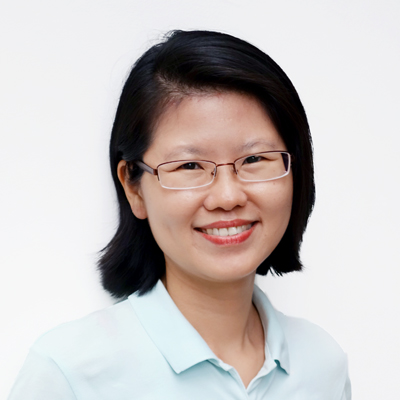
Senior Lecturer, Language and Communication Centre
Khoo Phaik Suan, Susan
Office: SHHK-02-02
E-mail: [email protected]
Ms Khoo joined NTU in 1999 as a Lecturer teaching Communication Skills. She obtained her M.A. from the University Of Essex, UK. She was involved with the curriculum revision for the Critical Writing course and typically teaches Critical Writing and Technical Writing courses. Ms Khoo is interested in a wide range of topics from psycholinguistics to the teaching and acquisition of critical writing skills.

Senior Lecturer, Language and Communication Centre
Lam Tsui Eu Sandra
Office: SHHK-02-14
E-mail: [email protected]
Lam Tsui Eu Sandra holds a Doctorate degree in Applied Linguistics from the National Institute of Education, Nanyang Technological University (NTU), Singapore and two Master’s degrees, one in English from Cambridge University, UK and the other, in Applied Linguistics from NTU. She teaches communication and research writing courses. Her research interests include teaching methodologies, academic writing, and the use of peer feedback in the teaching of L2 writing. She has published in Instructional Science and presented papers at international conferences such as the BAAL Conference 2011, AILA World Congress 2014 and EATAW Conference 2017.
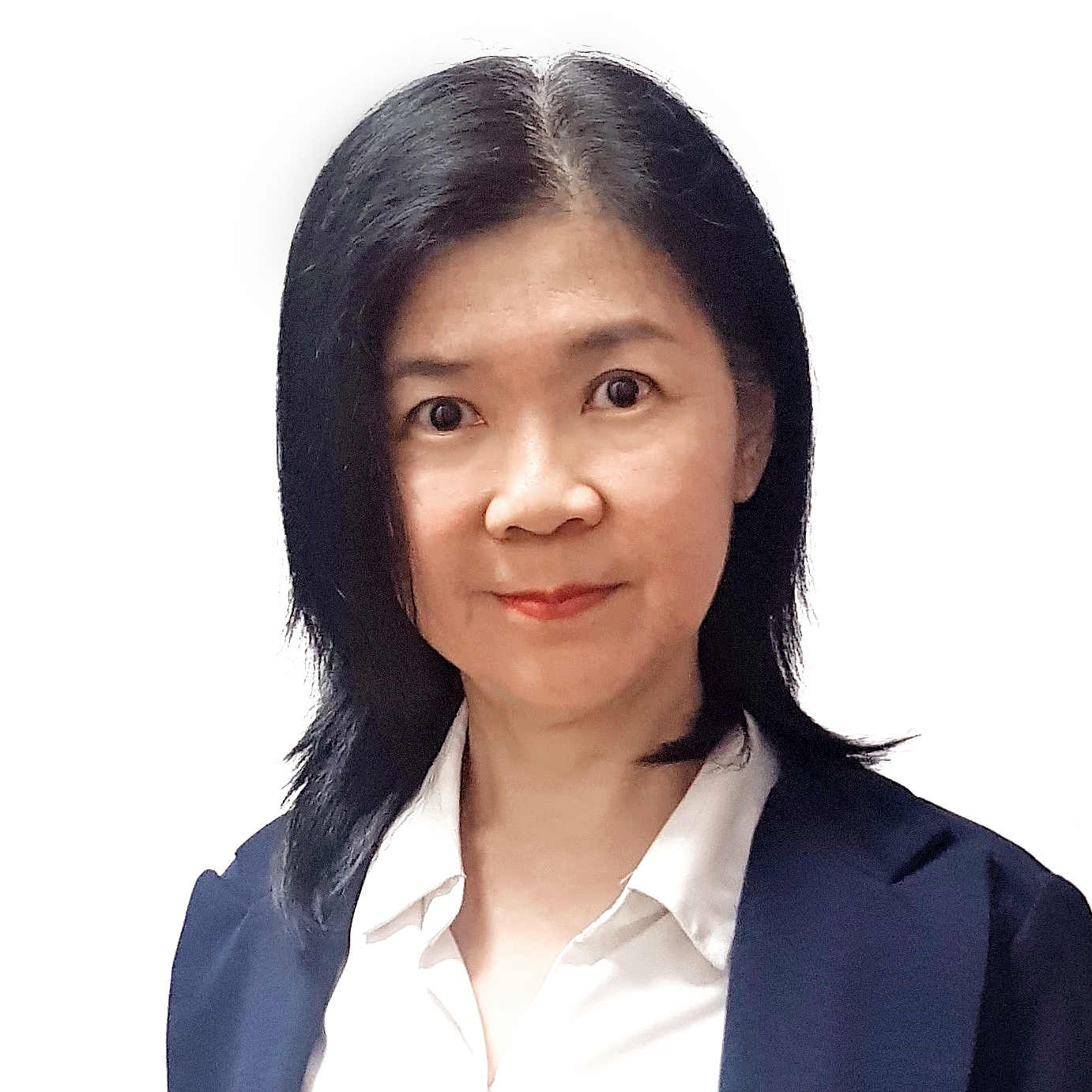
Assistant Chair (Communications and Community Engagement), School of Humanities
Senior Lecturer, Language and Communication Centre
Lee Cheng Choong Peng, Jean
Office: SHHK-02-05
Telephone: 6592 1557
E-mail: [email protected]
Jean holds a PhD and MA in Applied Linguistics from Nanyang Technological University. She obtained her BA from the National University of Singapore and her DipEd (Postgrad) from the Institute of Education (NUS).
In AY2019/2020, Jean won the SoH Lecturer Excellence (LEX) Award which recognises her contributions to teaching. Over the years, she has served as the Chief Examiner for the NTU Entrance Examinations (EL), as well as a course coordinator/ curriculum developer/leader for Engineering Communication courses. She currently serves as a consultant in the School of Humanities Peer Teaching Consultation programme, helping with the development of effective teaching skills for her peers.
Selected Publications
Lee, J.C.P. (2024). Co-speech gestures in enhancing engineering proposal presentations: A multimodal analysis of ESP spoken discourse. ESP Today, 12(2), 319-348.
https://doi.org/10.18485/esptoday.2024.12.2.6
Lee, J.C.P. (2023). Gaze and facial expression in engineering student presentations: A case study of a high- and low-performing presenter. ESP Today, 11(1), 6-30.
https://doi.org/10.18485/esptoday.2023.11.1.1
Lee, J.C.P., & Chan, W. L. (2025). Co-teaching in a Singapore engineering classroom: students' perceptions and learning outcome in speaking and writing. Pedagogies: An International Journal, 1-21.
https://doi.org/10.1080/1554480X.2025.2498149
Goh, C.C.M., & Lee, J. C. P. (2025). ESP and Listening: Theory, Technology, and Multimodality. In S. Startfield & C. A. Hafner (Eds.), The handbook of English for specific purposes (2 ed., pp. 53-72). Wiley-Blackwell

Senior Lecturer, Language and Communication Centre
Leong Ping, Alvin
Office: SHHK-02-03
E-mail: [email protected]
Dr Leong joined the Language & Communication Centre as a Lecturer in 2009. He taught for seven years at the National Institute of Education, and for a year at the National University of Singapore (NUS). He obtained his Ph.D. from NUS in 2001, with a specialization in systemic functional grammar. He is presently the coordinator of the postgraduate writing course. Dr Leong has research interests in systemic functional grammar, discourse analysis, and literacy studies. He is the author of Theme and Rheme (Peter Lang, 2004) and a co-editor of Transforming Literacies and Language (Continuum, 2011). He has also published in international peer-reviewed journals.
Selected Publications
Leong, P. A., Toh, A. L. L., & Chin, S. F. (2018). Examining structure in scientific research articles: A study of thematic progression and thematic density. Written Communication, 35(3), 286–314.
Leong, P. A., & Lee, H. H. (2018). From both sides of the classroom: Perspectives on teacher feedback on academic writing and feedback practice. Journal of Teaching English for Specific and Academic Purposes, 6(1), 151–164.
Leong, P. A. (2018). Project-based teaching. In A. Shehadeh (Ed.), The TESOL encyclopedia of English language teaching (pp. 780–788). Hoboken, NJ: John Wiley & Sons.
Song, G., Lee, H. H., & Leong, P. A. (2017). Students' response to feedback: An exploratory study. RELC Journal, 48(3), 357–372.
Lee, H. H., Leong, P. A., & Song, G. (2017). Investigating teacher perceptions of feedback. ELT Journal, 71(1), 60–68.
Leong, P. A. (2016). Thematic density of research-article abstracts: A systemic-functional account. Word, 62(4), 209–227.
Leong, P. A. (2016). The thematic structure of homepages: An exploratory systemic-functional account. Semiotica, 2016(210), 105–127.
Leong, P. A. (2015). Singlish words—A personal narrative from ten young writers. In N. Ong, J. X. Ho, G. Song & Y. Lim (Eds.), Thinking minds, writing worlds (pp. 27–31). Singapore: Think. Write.
Leong, P. A. (2015). Topical themes and thematic progression: The “picture” of research articles. Text & Talk, 35(3), 289–315.
Leong, P. A. (2014). The passive voice in scientific writing. The current norm in science journals. Journal of Science Communication 13(1). A03.
Leong, P. A. (2013). Thinking critically: A look at students’ critiques of a research article. Higher Education Research & Development 32(4). 575–589.
Leong, P. A. (ed.). (2011). Transforming literacies and language: Multimodality and literacy in the new media age (with Caroline Mei Lin Ho & Kate T. Anderson). London: Continuum.
Leong, P. A. (2005). Talking themes: The thematic structure of talk. Discourse Studies 7(6). 701–732.
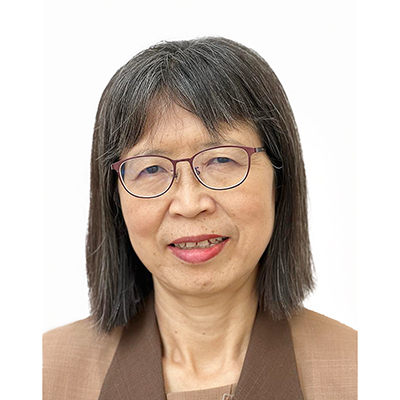
Senior Lecturer, Language and Communication Centre
Li Shu Yun
Office: SHHK-02-26
E-mail: [email protected]
Ms Li is a Senior Lecturer at the Language and Communication Centre. She has been teaching and coordinating language and communication skills courses to undergraduate students of various ethnic and linguistic backgrounds. For the last decade, she has designed materials and curriculum for various courses and programmes. Her current research interests are curriculum development, materials and course design.
Selected Publications
Ng, A. C. C., Chan, S. K., Chin, S. F., Li, S. Y., & Leong, P. A. (2013). Resume writing in the real world – Do business communication textbooks really give good advice? Asian ESP Journal, 9(3). Issue 73-97.
Song, G., & Li, S. Y. (eds.). (2011). Opening our hearts: Sharings of parents of children with Down syndrome. Singapore.
Chin, S. F., Chan, S. K., Li, S. Y., & Ng, A. C. C. (2009). Teaching resume writing: Comparing two perspectives to enhance classroom practice. The English Teacher, 38. 95-110.
Heah, C. & Li, S. Y. (2003). Collaborative material design for communication skills training in an engineering curriculum. Methodology and Materials Design in Language Teaching, Anthology Series, 44. 208-222.
Li, S. Y & Heah, C. (2001). Creating a communication skills module for engineers on an international development programme”. Journal on English for Specific Purposes (ESP Malaysia), 7(1). 31-37.
Li, S. Y & Hugh, M. (1996). Metacognitive strategies in second language academic reading: A qualitative investigation. English for Specific Purposes, 15(3). 199-216.

Lecturer, Language and Communication Centre
Clare Liem Sioe Hong
Office: SHHK-03-08
E-mail: [email protected]
Ms Liem is a lecturer in the Language and Communication Centre (LCC). She has diverse teaching experiences: English Language and Literature at Ministry of Education schools, Life Skills and Communication courses and Professional and Adult Continuing Education courses at Singapore Polytechnic, and currently academic communication courses at NTU. She completed her Master of Education (MEd) in English Language from NTU/NIE. Her interests include educational technology and teaching methodology for differentiated learning.

Lecturer, Language and Communication Centre
Lim Effandi, Illyas
Office: SHHK-03-42
E-mail: [email protected]
Mr Lim Effandi obtained his MSc in Applied Linguistics and Second Language Acquisition from the University of Oxford. Prior to joining NTU, he was a course leader at Singapore University of Social Sciences teaching semantics and pragmatics as well as language and literacy. Mr Lim Effandi has also taught communication courses at Singapore Polytechnic. He is interested in bilingualism, bilingual education and language teaching methodologies.

Senior Lecturer, Language and Communication Centre
Lin Tzer Liang Benedict Christopher
Office: SHHK-03-21
E-mail: [email protected]

Christina graduated with a PhD in Linguistics from the School of Humanities, Nanyang Technological University in 2023. Her doctoral research was on the variation and change of Singapore English vowels based on a sociophonetic study of data from the National Speech Corpus. Post-graduation, she taught academic writing and presentation to PhD students and professional communication to computer science undergraduates at the National University of Singapore.
Prior to her doctoral studies, Christina worked in global scholarly publishing for 10 years, first as an editor for humanities and social sciences books, subsequently as a managing editor of science and technology journals and finally as commissioning editor of education, psychology and linguistics books. Before entering the research publishing industry, Christina was an educator for 12 years, teaching communication skills at various polytechnics and English Language at secondary schools and SEAMEO Regional Language Centre. She has authored various supplementary teaching books and materials for the Singapore schools market over the years.
Beyond academia and publishing, Christina is a Pilates enthusiast. She also crochets to de-stress.

Senior Lecturer, Language and Communication Centre
Keri Matwick
Office: SHHK-02-15
E-mail: [email protected]
Dr. Matwick is a Lecturer in the Language and Communication Centre (LCC). She joined NTU in 2018 and teaches Academic Communications in the Arts, Humanities, and Social Sciences. Her research uses interactional sociolinguistics, discourse analysis, and multimodal analysis to examine food media discourse, specifically cooking shows and cookbooks. With her twin sister Kelsi, Keri wrote a book on ‘food discourse,’ the written, spoken, and audiovisual discourse on food, including its preparation, preparation, and consumption, and how it expresses individual and collective sociocultural values about food. Her favorite texts to research are cooking shows, cookbooks, and food media.
She is the inaugural Editor of Pioneer Road, a student journal published by the LCC that features exemplary student works.
Keri welcomes student projects on food and language.
Selected Publications
Matwick, K., & Matwick, K. (2020). Trump-Kim 2018 Singapore Summit and culinary diplomacy: The role of food and symbols in international relations. Place Branding & Public Diplomacy. https://doi.org/10.1057/s41254-020-00188-x
Matwick, K., & Matwick, K. (2019). Linguistic landscape and authenticity in a Japanese supermarket in Singapore. Open Linguistics, 5(1), 532-552. https://doi.org/10.1515/opli-2019-0029
Matwick, K., & Matwick, K. (2019). Bloopers and backstage talk on TV cooking shows. Text & Talk, 40(1), 49-74. https://doi.org/10.1515/text-2019-2052
Matwick, K., & Matwick, K. 2018. Restaurant reviews and college writing: A framework for teaching. Teaching Journalism & Mass Communication (TJMC), 8(2), 25-37. https://aejmc.us/spig/wp-content/uploads/sites/9/2018/12/TJMC-8.2-MatwickMatwick.pdf
Matwick, K., & Matwick, K. 2018. Humor and performing gender on TV cooking shows. Humor, 31(3).
Matwick, K., & Matwick, K. 2018. Politeness and pseudo-intimacy in a food radio call-in program. Discourse, Context & Media, 21, 46-53.
Matwick, K., & Matwick, K. 2017. Culinary tourism in Central America: A cross-analysis of government tourism websites. Journal of Culinary Science & Technology. https://doi.org/10.1080/15428052.2017.1378601
Matwick, K., & Matwick, K. 2017. Women’s language in female celebrity chef cookbooks. Celebrity Studies, 1-16.
Matwick, K., & Matwick, K. 2017. Self-deprecatory humor on TV cooking shows. Language & Communication, 56, 33-41.
Matwick, K., & Matwick, K. 2017. Cooking at home: A multimodal narrative analysis of the Food Network. Discourse, Context & Media. 17, 20-29.
Matwick, K. 2016. Multimodal legitimation strategies on tv cooking shows. Multimodal Communication, 5(2).
Matwick, K., & Matwick, K. 2015. East meets West: The discourse of Japanese American cookbooks as intercultural communication. Journal of Intercultural Communication, 39.
Matwick, K., & Matwick, K. 2015. Inquiry in television cooking shows. Discourse & Communication, 9(2), 313-330.
Matwick, K., & Matwick, K. 2014. Storytelling and synthetic personalization in television cooking shows. Journal of Pragmatics, 71, 151- 159.
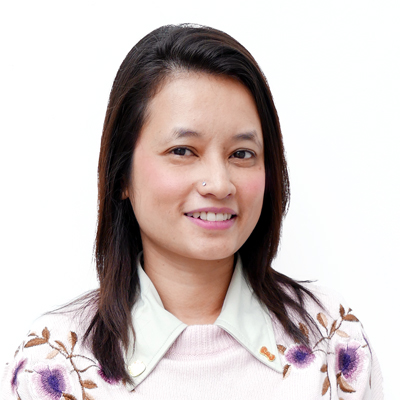
Lecturer, Language and Communication Centre
Nalls, Irdawati Bay
Office: SHHK-03-25
E-mail: [email protected]
Dr. Irda Nalls joined the Language and Communication Centre (LCC) at Nanyang Technological University in 2017. She received a BA in Education with specialization in English and Literature from NTU, and an MA in Applied Linguistics from the University of Colorado (CU), America. She also has a Ph.D in Education and Human Development from CU. Prior to joining academia, she taught English in Ministry of Education-run schools for about 15 years and worked with adults from different parts of the world at the British Council for about 2 years, teaching English as a foreign language. She is passionate about bilingualism and multilingualism, and is interested in educational studies, identity and critical theories. She speaks five languages, and reads and writes in three of them. Currently, she is learning Hieroglyph with the goal of visiting Egypt to study writings on the tombs. In addition, she believes in empowering marginalized communities.
Selected Publications
Nals, I. B. (2012). [Review of the book Bilingual First Language Acquisition, by A. DeHouwer]. NABE (Sept-Dec, 2012).
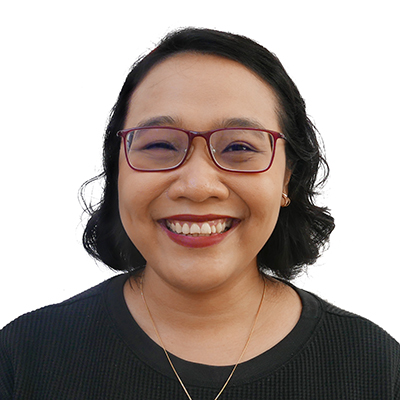
Lecturer, Language and Communication Centre
Nuraliah Norasid
Office: SHHK-02-20
E-mail: [email protected]
Dr. Nuraliah is a Lecturer in the Language and Communication Centre (LCC). She obtained her Ph.D. in English and Creative Writing in 2015. Her thesis is a work of creative piece that highlights issues such as marginality, isolation and socio-historical traumas through the writing practices and considerations of contemporary mythopoesis. That work eventually resulted in The Gatekeeper, the novel which won her the Epigram Books Fiction Prize in 2016. Her writing, both fiction and non-fiction, has been published in several journals, magazines and anthologies. These include Quarterly Literary Review Singapore (QLRS), Budi Kritik, Perempuan: Muslim Women in Singapore Speak Out, and Singa-Pura-Pura: Malay Speculative Fiction from Singapore. Her research interests are in the practices and modes of narratives and storytelling, especially in the way they construct and deconstruct cultural and political imaginaries. Her creative writing often centres on subjects of family, community, society, religion, and inequality. Outside of research and writing, Nuraliah enjoys video gaming and walking.
Book
Nuraliah, N. (2017). The Gatekeeper. Epigram Books.
Short Fiction
Nuraliah, N. (2016). Madam Jamilah’s Family Portrait. Quarterly Literary Review Singapore, 15(3).
Nuraliah, N. (2017). Parapet Linkages. In D. Kon Zhicheng-Mingde (Ed.), Eye/Feel/Write: Building Architectonics (pp. 68–69). Squircle Line Press.
Nuraliah, N. (2018). Smart Nation. Moving Worlds: A Journal of Transcultural Writing, 18(2), 2–12.
Nuraliah, N. (2019). Alternative Futures. Mynah Magazine, 3, 19–25.
Nuraliah, N. (2020). The Sun, the Moon and Soup at Iftar. In A. D. Pillai & F. Cheong (Eds.), A View of Stars: Stories of Love (pp. 117–127). Marshall Cavendish Editions.
Nuraliah N. (2021). Prayers from a Guitar. In N. Bahrawi (Ed.), Singa Pura-Pura: Malay Speculative Fiction from Singapore. Ethos Books.
Essays, articles, and op-eds
Aboo Kassim, A. S., & Nuraliah, N. (2016, March 18). Encourage more economically inactive women to seek employment. The Straits Times.
Nuraliah, N. (2016). The Gamer’s Guide to Self-Image in the Modern World. In V. Wee & F. Sumartono (Eds.), Perempuan: Muslim Women Speak Out. Association of Women for Action and Research (AWARE).
Aboo Kassim, A. S., & Nuraliah, N. (2018, November 30). Komentar: Ketidaksamarataan sentiasa wujud dalam masyarakat tetapi ia perlu dikawal dengan baik - BERITA MediaCorp. BERITA Mediacorp – Berita Terkini, Melayu, Muslim, Islam, Singapura, Dunia.
Nuraliah, N. (2015, August). “Single Thread in the Tapestry”: Travelogue and Reflection in Spaces of Dis-Familiarity. The Karyawan: Professionals for the Community, 11(1), 38–40.
Nuraliah, N. (2017a, April 20). Sectarianism and Muslim Diversity: Lessons for the Malay/Muslim Community. The Karyawan: Professionals for the Community, 12(2), 22–25.
Nuraliah, N. (2017b, October). On Charlottesville and its Significance for Singapore. The Karyawan: Professionals for the Community, 12(4).
Nuraliah, N. (2018a). “Society needs enlightened stories of humanity that can inspire social change.” In M. I. Mohamed Taib & N. F. Johari (Eds.), Budi Kritik (pp. 59–68). The Literary Centre.
Nuraliah, N. (2018b, April). In Defense of Reading: Need for Culture of Literary Literacy in the Malay Community. The Karyawan: Professionals for the Community, 13(2).
Nuraliah, N. (2021, January). Accompaniment to the recordings from The Gatekeeper. Bite the Tongue. https://xi-ng.com/The-Gatekeeper

Amilyn Ong is a Lecturer at the Language and Communication Centre. She has been teaching writing and language courses in various institutes of higher learning for the past 10 years and obtained her Master of Education (Med) in English Language from the National Institute of Education, Nanyang Technological University in 2018. Amilyn’s research interests include classroom discourse analysis, creating dialogical spaces in the classroom as well as textual analysis of metadiscourse features in student writing. Other areas of interest include perceptions of Singapore English and language policies.

Lecturer, Language and Communication Centre
Quek Li Kang Jerrold
Office: SHHK-02-22
E-mail: [email protected]
Prior to joining NTU-LCC full-time, Jerrold taught and facilitated a variety of courses on Academic Writing, Professional Communication, Linguistics and English Language in various institutions. Having studied Linguistics and English Literature, he enjoys a good conversation on such topics like first language acquisition, sociolinguistics, poetry and the works of Shakespeare and Jane Austen. He has a particular interest in English in Singapore and Singlish, and how language is used to build, communicate, and maintain relationships, both personal and professional, and in various contexts. Jerrold relishes learning about different cultures, particularly through engagement with the language, history, arts, and cuisine, and loves watching musical theatre and historical dramas.
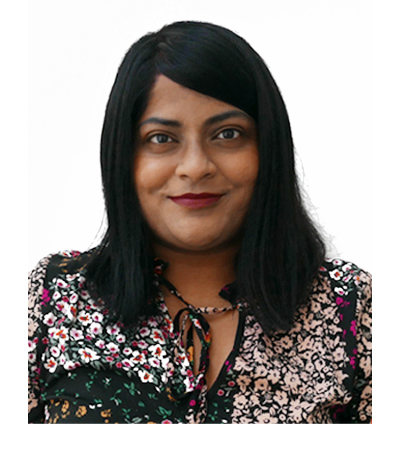
Prasanthi Ram is a lecturer in the Language and Communication Centre at Nanyang Technological University (NTU). After receiving her BA in English literature from the National University of Singapore in 2014 and her MA in creative writing from the University of Sydney in 2016, she most recently completed her PhD in creative writing at NTU. Her short stories have been anthologised in Food Republic: A Singapore Literary Banquet (Landmark Books: 2020) and A Tapestry of Colours 2: Stories from Asia (Marshall Cavendish: 2021), as well as published in various online journals including The Willowherb Review. Outside of fiction writing, she contributes to Singapore Unbound's literary and arts blog SP Blog as both a reviewer and an essay reader. She is also the co-founder and fiction editor of Mahogany Journal, an online literary journal dedicated to South Asian anglophone writers born or based in Singapore.
Selected Publications
Ram, P. (2020). The Panasonic. In A. Ang, D. Lim, H.G. Tse (Eds.), Food Republic: A Singapore Literary Banquet (pp. 134-137). Landmark Books.
Ram, P. (2021). The Cassette. In A. D. Pillai (Ed.), A Tapestry of Colours 2: Stories from Asia (pp. 170-181). Marshall Cavendish Editions.

Dr Shan is a Lecturer in the Language and Communication Centre. Her teaching experience includes ESL, EFL, EAP, and EAC, as well as faculty courses in education and linguistics. Her research interests lie in language learning strategies, culturally responsive teaching and reading difficulties with a particular interest in dyslexic students’ strategies at the tertiary level. She completed her Ph.D. thesis on a longitudinal study of the development of the reading gap among New Zealand children across different socioeconomic bands.
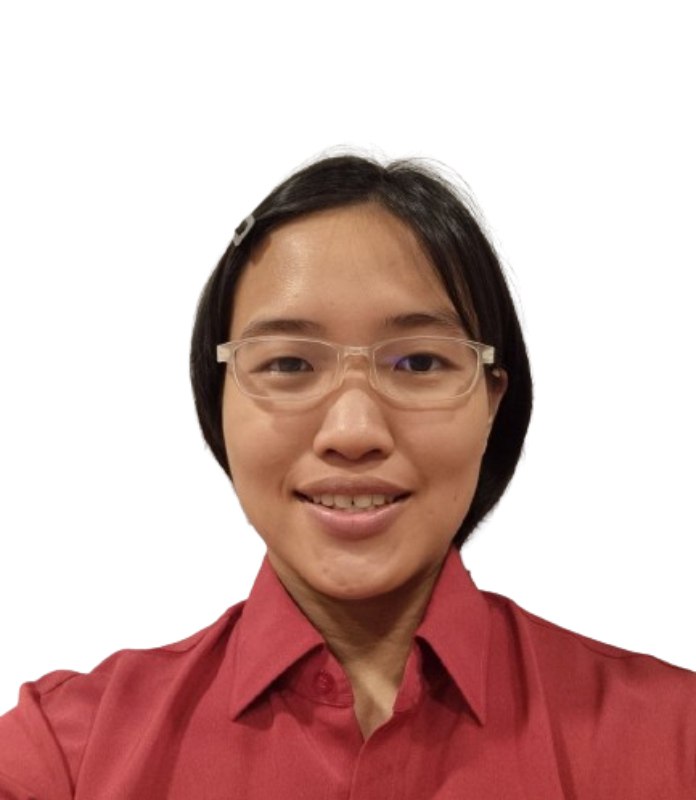
Michelle completed her MA in Linguistics and Multilingual Studies at NTU in 2021. Her thesis, titled "A Sketch Grammar of Singapore Fuzhou," detailed the phonology, word classes, and phrase and clause structure of this endangered language. She is deeply interested in how grammar reflects thought and specific grammatical theories like RRG or information structure.
With diverse internship experiences in research, journalism, and teaching, Michelle is passionate about endangered languages and aiding marginalized communities to find a voice, like the migrant literary scene.
She enjoys working with communities and conducting language documentation to ensure the continuity of culture for posterity's sake. In her down time, she finds relaxation in the art of origami.

Lecturer, Language and Communication Centre
Tejash Kumar Singh
Office: SHHK-02-08
E-mail: [email protected]
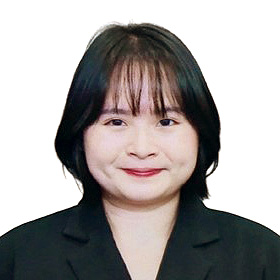
Ms Soh completed her MA in Linguistics and Multilingual Studies in 2019, where she described and analysed serial verb constructions of the Shan language. She was trained mainly in functional linguistics and in language documentation, with her training shaping the way she views language. She is fascinated by the workings of language and how it reveals the way an individual conceptualises their world.
She is currently interested in literacy education and bridging it for marginalised children and women so that they may flourish and be afforded more opportunities.
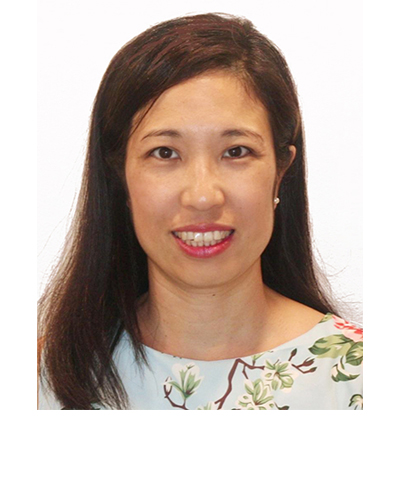
Lecturer, Language and Communication Centre
Esther Wansing Soo-Chee
Office: SHHK-02-11
E-mail: [email protected]
Esther Wansing Soo is a lecturer at the Language and Communication Centre (LCC) at Nanyang Technological University. Since obtaining her B. Ed. from the University of Toronto and M.A (Applied Linguistics) from the National University of Singapore, she has accumulated over twenty years of teaching experiences in various universities and schools in Canada, China and Singapore, teaching English as a Second Language, academic writing, and communication skills to students from different disciples at the universities. She has also taught cross-culturally to students of various ethnic and indigenous backgrounds, and designed curricula for oral proficiency programs. Among her research interests are pedagogies that promote cross-cultural competence, language acquisition, problem-based learning, and curriculum design.
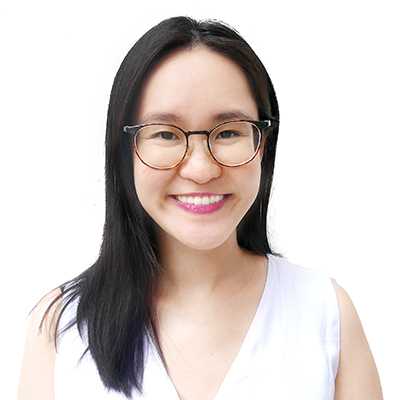
Lecturer, Language and Communication Centre
Audrey Tan Hui En
Office: SHHK-02-01
E-mail: [email protected]
Audrey has been teaching at NTU since doing her Master of Arts in English in 2019. Aside from LCC courses, she has also taught Introduction to Creative Writing under HSS. Her thesis was a project of short stories accompanied by a critical study on short story theories, narratology, and other themes such as time and memory. She continues the difficult yet rewarding practice of fiction writing, while copiously reading short stories.
Audrey’s fiction has been published locally and overseas, and she is an editor of the Journal of Practice, Research and Tangential Activities (PR&TA). She hopes to publish more short fiction, and to explore academic research in areas related to the Singapore short story, as well as how narrative theories can intersect with pedagogical approaches on reading and writing. Previously, she has worked as a copywriter and interned as a journalist.
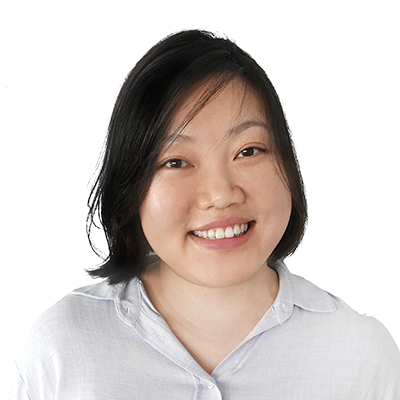
Lecturer, Language and Communication Centre
Geraldine Tan Le Ting
Office: SHHK-02-13
E-mail: [email protected]
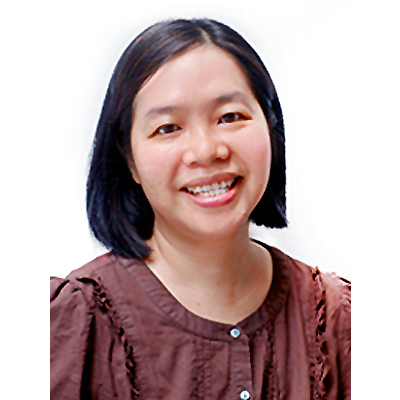
Senior Lecturer, Language and Communication Centre
Tan Mia Huan
Office: SHHK-03-28
E-mail: [email protected]
Ms Tan joined Nanyang Technological University in 2007 and is a senior lecturer. She received an undergraduate degree in Business Administration from the National University of Singapore and obtained her M.Ed. (English Language) from the National Institute of Education at Nanyang Technological University. She typically teaches Technical Communication, Mastering Communication and English Proficiency. Her research interests include Bilingualism and Bilingual education, Literacy development of Bilingual children, and CALL (Computer-Assisted Language Learning).
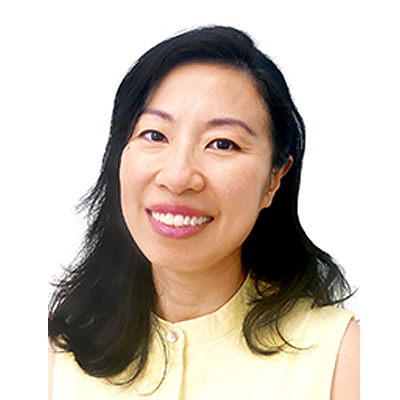
Lecturer, Language and Communication Centre
Tan Woon Hong, Eunice
Office: SHHK-02-23
E-mail: [email protected]
Eunice is a Lecturer in the Language and Communication Centre (LCC). She has taught academic communication skills to students from various disciplines in NTU. Her undergraduate studies in Literature were done in NUS, and she completed an MA in TESOL (Educational Technology) from the University of Manchester. She has been teaching academic communication skills for the last 13 years in Singapore and Japan. Her research interests are in the areas of inter-cultural studies, teacher professional development, educational technology and language for peacebuilding.
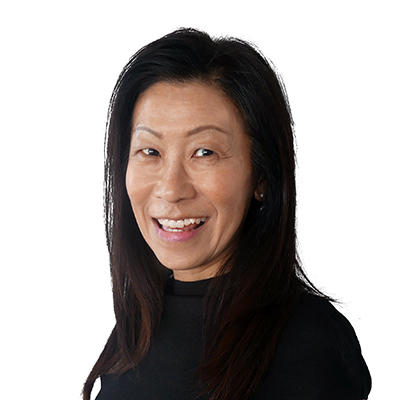
Lecturer, Language and Communication Centre
Toh Lin Lin, Audrey
Office: SHHK-02-09
E-mail: [email protected]
Ms Toh joined the Language and Communication Centre in January 2017. She has taught courses in English literature, academic writing and management communication, and communication and writing courses at SIM University, Singapore Management University (SMU) and NTU respectively. She has also had roles as a language consultant at SMU’s Lee Kong Chian School of Business and English instructor at the Lee Kuan Yew School of Public Policy at the National University of Singapore (NUS). Since obtaining her M.A. (English) in feminist poetry from NUS and B.A. from the University of Toronto (Canada), she has also worked as a political analyst with the Ministry of Defence (Singapore). Among her research interests are political discourse and communication, business communication and crisis management and the linguistic habits of Chinese students writing in English.
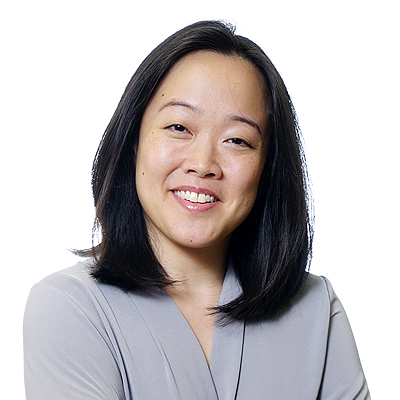
Senior Lecturer, Language and Communication Centre
Kristina Marie Tom
Office: SHHK-02-10
E-mail: [email protected]
Kristina Marie Tom is a Senior Lecturer at LCC. Since she joined NTU in 2009, Kristina has spent more than a decade writing, researching, designing curriculum, and teaching students across the University, from CoHASS to CoE. Her academic leadership experience includes leading curriculum design teams and coordinating teaching faculty for large courses; leading research teams; setting language exams for the QET and UEE; leading Technology-Enhanced Learning course transformations; and hiring, training, and mentoring junior faculty. Outside of her core work with LCC, she remains highly involved in student life and development: she has coordinated leadership communication skills training for NTU’s Student Leadership Development Programme (SLDP) since 2019, has taught with the MOE/NTU Bridging Programme, supervised young researchers with URECA, and served as a Hall Fellow/Faculty-in-Residence (FiR) since 2011, with her current appointment at Tamarind Hall seeing her spearhead Residential Education efforts and student wellbeing as lead of the newly formed Residential Student Care Team. Kristina’s publications include research, literary criticism, and creative work. An award-winning writer, she is the recipient of an EdeX grant for her pedagogical research, an NAC Creation Grant for her novel Turtle Mountain, and an MOE AcRF Tier 1 grant for her research into Singapore’s linguistic landscapes.
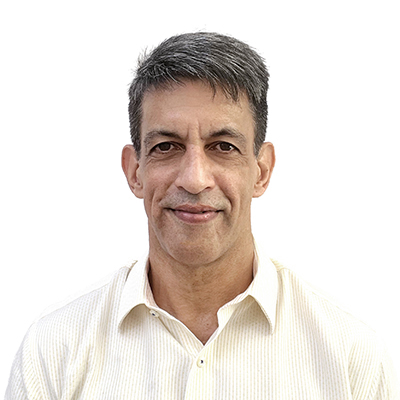
Senior Lecturer, Language and Communication Centre
Roger Winder
Office: SHHK-03-34
E-mail: [email protected]
Mr Winder first joined the Language and Communication Centre in 2008. Since obtaining his M.A. (English Language) from the National University of Singapore (NUS) in 1996, he has taught courses in linguistics, communication skills and English proficiency at NTU, NUS, Singapore Management University, the National Institute of Education, and SIM University (now Singapore University of Social Sciences). Prior to joining NTU in 2008, Mr Winder was the Programme Director at Action for AIDS, a non-governmental organisation dealing with HIV/AIDS issues. Apart from teaching writing and communication skills courses, he runs the LCC Communication Cube, a peer-tutoring service for NTU students. Among his research interests are coaching strategies for peer-assisted writing, the use of technology in teaching and critical discourse analysis.
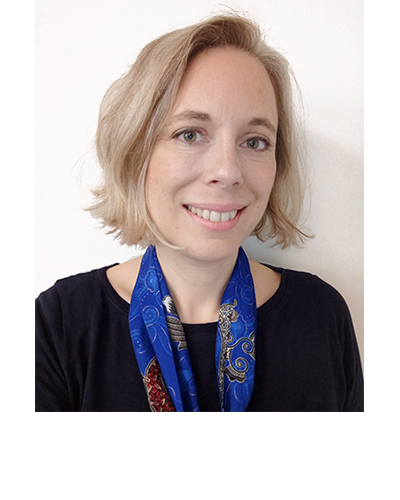
Lecturer, Language and Communication Centre
Katharine Elisabeth Wright
Office: SHHK-03-38
E-mail: [email protected]
Dr. Kate Wright is a lecturer in the Language and Communication Centre at Nanyang Technological University. She received her PhD in English Literature in 2007 at the University of Wales, Aberystwth. In 2012, she was awarded the British Postgraduate Certificate of Teaching in Higher Education. Dr. Wright has broad experience in teaching critical reading skills, research practice and academic writing in English. She also has subject-specialist teaching experience in women's fiction, literary theory, and gender and diversity studies.
Dr. Wright's research interests are in gender, diversity, intersectional reading practices, feminism, and women's writing and the Gothic.
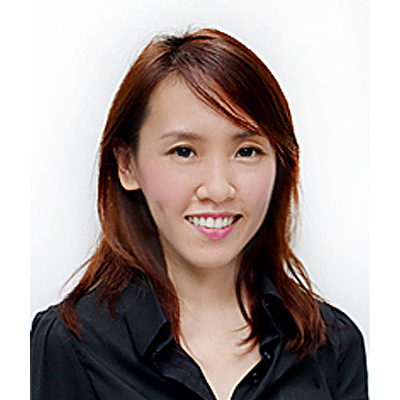
Manager, Language and Communication Centre
Shannen Teo
Office: SHHK-02-19
Telephone: 6513 7635
E-mail: [email protected]
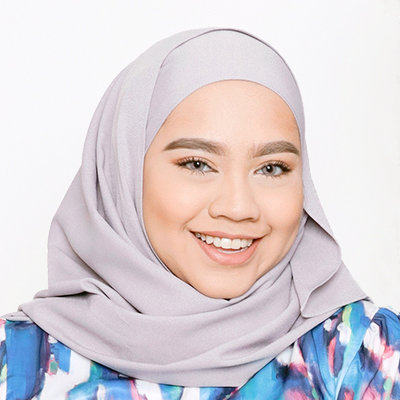
Senior Executive, Language and Communication Centre
Siti Sulaiha bte Kamsani
Office: SHHK-02-19
Telephone: 6513 7633
E-mail: [email protected]
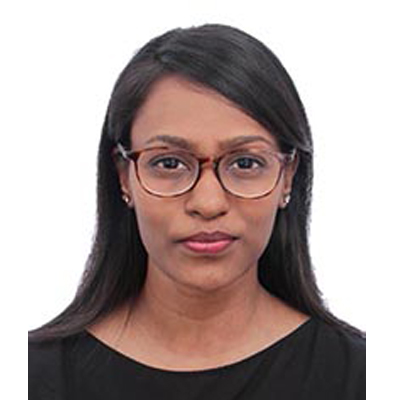
Senior Executive, Language and Communication Centre
Gowri d/o Maruthan
Office: SHHK-02-19
E-mail: [email protected]
---400-x-400-px.jpg?sfvrsn=f818d97d_0)
Executive, Language and Communication Centre
Noor Shahirah Binte Wahab
Office: SHHK-02-19
E-mail: [email protected]

